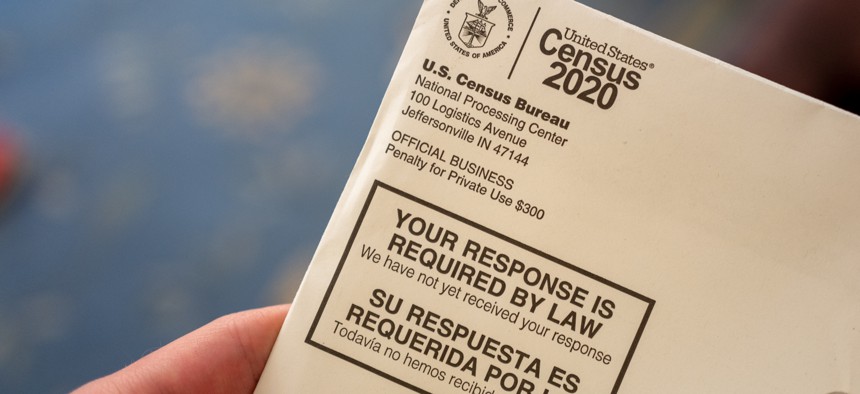Detroit Sues the U.S. Census Bureau Over Alleged Undercounts

Photo by Smith Collection/Gado/Getty Images
The Census Bureau contends that Detroit lost 7,100 residents from 2020 to 2021, but Mayor Mike Duggan said that number is inaccurate.
In a case that could have implications for other cities, Detroit on Tuesday filed a federal lawsuit against the U.S. Census Bureau alleging that a 2021 population estimate undercounted city residents.
The Census Bureau contends that Detroit lost 7,100 residents from 2020 to 2021, but Mayor Mike Duggan said that number is inaccurate. He cited figures from the electrical utility company showing 7,544 new accounts and the U.S. Postal Service indicating that mail is being delivered to 4,475 more residences during that same span.
"Everybody in this town is dealing with rising property values and rising rents because so many people are coming in,'' Duggan said at a press conference Tuesday. "We're drawing a line in the sand. We're going to try to force accuracy out of these guys one way or another."
The Census Bureau formula used for the population estimate is flawed, Duggan said, and it perpetuates racial harm in a city that is majority Black. The agency acknowledged that the 2020 Census undercounted the nation’s Black population by 3.3% and the Hispanic population by 4.99%. In Detroit, with a combined Black and Hispanic population that tops 84%, that amounts to an undercount of over 20,000 people, the city said.
At stake are tens of millions of dollars in federal funding. Census population figures are also used to draw Congressional seats.
Typically, the Census Bureau has a process that allows cities to contest population estimates, which are based on the once-a-decade count last conducted in 2020. But that process has been temporarily suspended, leaving communities no option short of legal action, Duggan said. "We are asking the judge to require the Census Bureau to follow their rule, which was to provide for an annual appeal of their estimates as they always have in the past,'' he said. "If the judge requires them to follow their rule, two things will happen: one is they will give us a formula. Second, we will have an appeal process and that's all we're asking for."
Duggan said he has had conversations with other mayors who have also expressed concerns about the Census Bureau's formula. "This is just strange that they're concealing the formula for the cities,'' he said.
A spokesperson said in an email that Census Bureau does not comment on litigation and referred all questions to the U.S. Department of Justice, which did not immediately respond.
Detroit also filed an administrative challenge appealing the 2020 count, which put the city's population at about 640,000. Duggan says Detroit is currently home to between 670,000 and 680,000 people.
"Census undercounts have alarming real-world consequences that deprive cities like Detroit of their fair and intended share of critical funding for schools, hospitals, affordable housing, and more," said U.S. Rep. Brenda Lawrence, a Democrat who represents a portion of Detroit. "If the census is not accurate, then the annual population numbers that guide hundreds of billions of dollars in federal aid to communities and families are not accurate either.”
Daniela Altimari is a staff reporter at Route Fifty.
NEXT STORY: Capitalizing Change: Appalachia’s Sustainable Finance Hub





